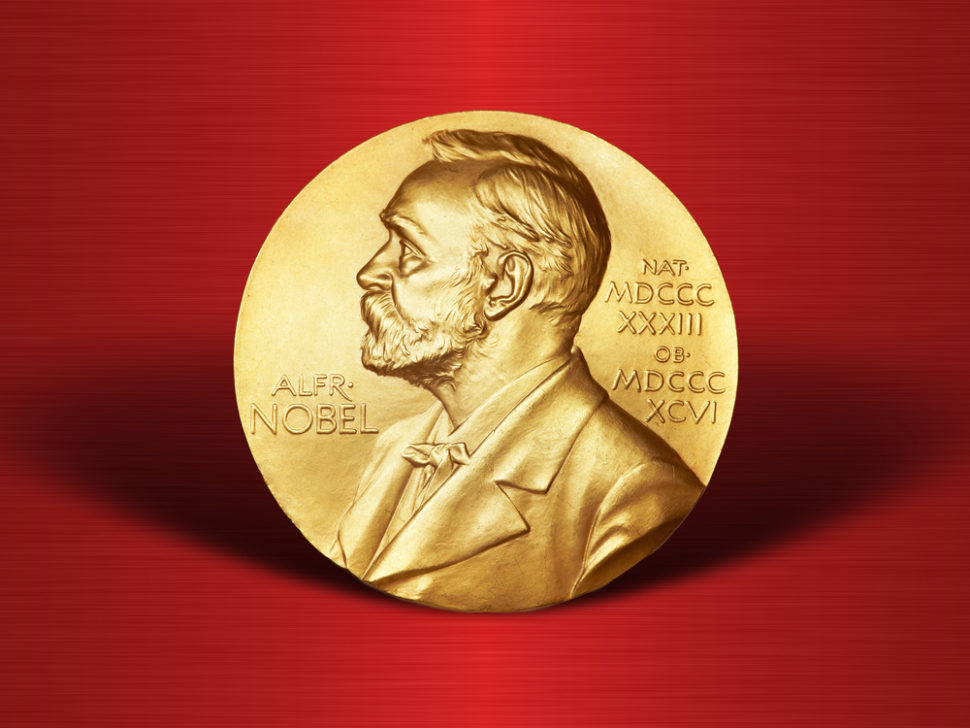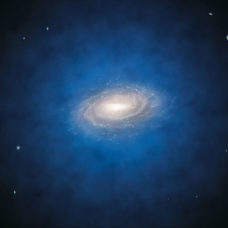Three scientists have won the 2020 Nobel Prize in Physics for their discoveries about black holes.
The first scientist, Roger Penrose, is a professor at the University of Oxford. And he won half of the prize for discovering that “black hole formation is a robust prediction of the general theory of relativity.”
Meanwhile, Reinhard Genzel and Andrea Ghez received the second half of the 2020 Nobel Prize for Physics. The duo won the prize “for the discovery of a supermassive compact object at the center of our galaxy.”
In a statement about the award, a professor of natural philosophy at the University of York, Tom McLeish, said:
“Penrose, Genzel and Ghez together showed us that black holes are awe-inspiring, mathematically sublime, and actually exist.”
There’s more.
Discovering Supermassive Black Holes in our Galaxy
In 1965, Penrose used Albert Einstein‘s general theory of relativity to prove black hole formation mathematically. After that, the detailed his study in a published paper.
Then in the 1990s, two scientists, Genzel and Ghez, each leading a group of astronomers, set their sight on a part of our Milky Way galaxy. It was a dust-covered region called the Sagittarius A*, where something was going on.
At the time, both researchers noted that a weighty, invisible object was pulling on the jumble of stars. As a result, the stars rushed around at dizzying speeds.
As it turned out, that invisible object was a supermassive black hole — four times the mass of the Sun. Thanks to the study, scientists now know that all galaxies have supermassive black holes.
In a statement, the professor of theoretical physics at Uppsala University in Sweden, Ulf Danielsson, said:
“This year’s laureates have uncovered secrets in the darkest corner of our universe. But this is not just an old adventure coming to its triumphant conclusion, it is a new one beginning.”
About The 2020 Nobel Prize Awards
The three scientists received a gold medal for their discoveries about “one of the most exotic phenomena in the universe.” They’re also expected to receive 10 million Swedish Kronor prize money (about $1.1. million).
Yesterday, the committee awarded the Nobel Prize for Physiology and Medicine to Harvey J. Alter, Charles M. Rice, and Michael Houghton. The trio shared the prize for discovering the liver-ravaging hepatitis C virus.
The awards for outstanding works in the field of chemistry, literature, peace, and economics should follow in the coming days.



















Investment is one of the best ways to achieve financial freedom. For a beginner there are so many challenges you face. It’s hard to know how to get started. Trading on the Cryptocurrency market has really been a life changer for me. I almost gave up on crypto at some point not until saw a recommendation on Elon musk successfully success story and I got a proficient trader/broker Mr Bernie Doran , he gave me all the information required to succeed in trading. I made more profit than I could ever imagine. I’m not here to converse much but to share my testimony; I have made total returns of $10,500.00 from an investment of just $1000.00 within 1 week. Thanks to Mr Bernie I’m really grateful,I have been able to make a great returns trading with his signals and strategies .I urge anyone interested in INVESTMENT to take bold step in investing in the Cryptocurrency Market, he can also help you RECOVER your lost/stolen Cryptocurrencies. you can reach him on WhatsApp : + 1 (424) 285 – 0682 or his Gmail : BERNIEDORANSIGNALS @ GMAIL . COM bitcoin is taking over the world, tell him I referred you